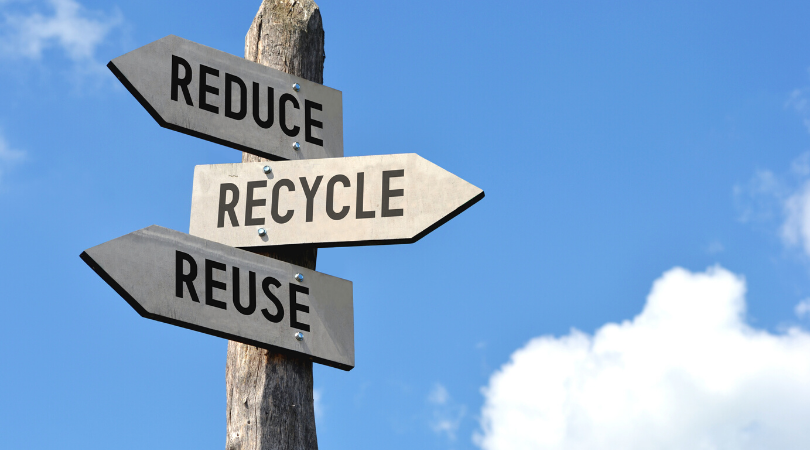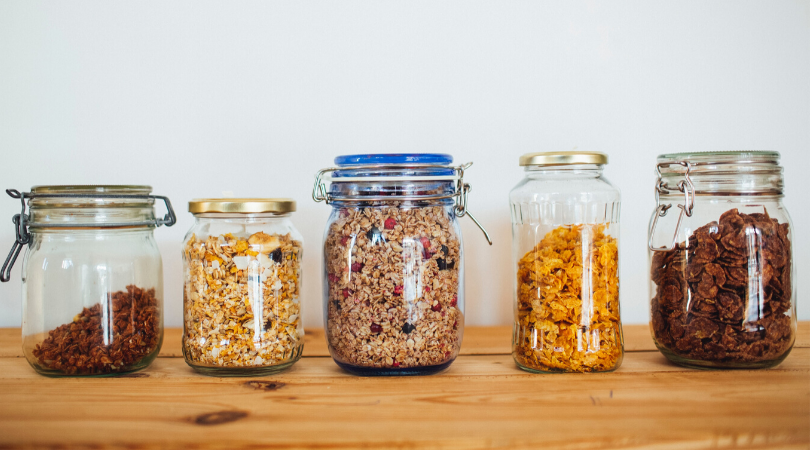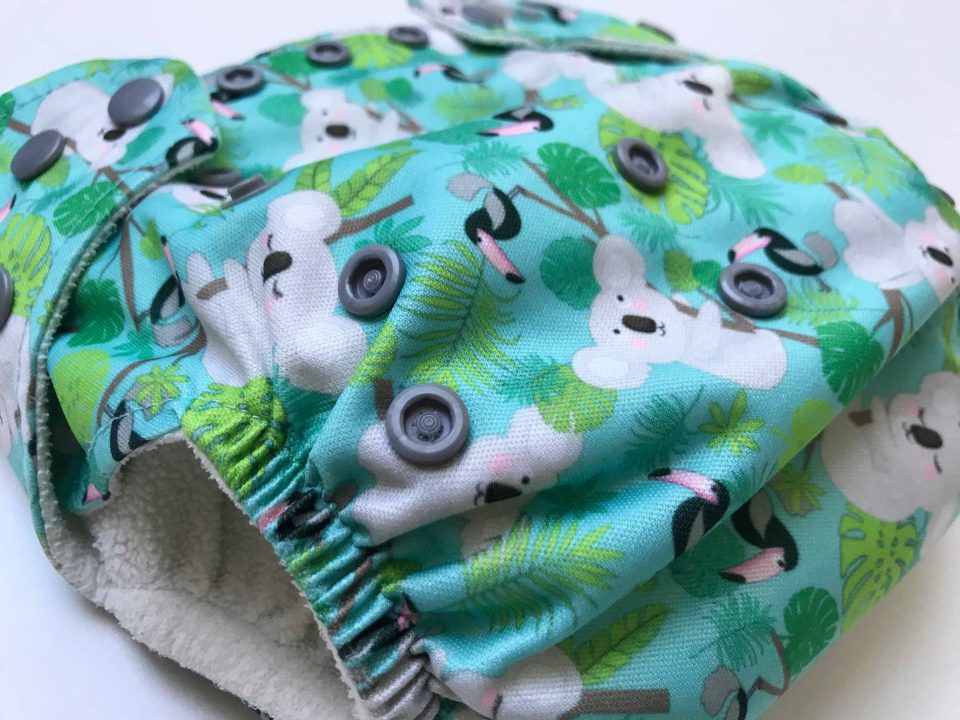
Reduce, Reuse, Recycle: What Can You Do With Your Waste?

Reduce, reuse, recycle, we hear that a lot, don’t we? It’s easy to keep saying it as a mantra but how many people actually follow this correctly? You see, it is written in this order for a reason. The best way to make an impact is by reducing what you use, what you buy and what you throw away. By taking it away, you are eliminating a huge problem. However, if you cannot reduce, your next best step towards a more sustainable life is reusing what you have. This is a great way of making the most of your waste or perhaps looking to make more reusable swaps (which we will look at in a minute). And your last choice is to recycle. You may be wondering why I have said the last choice and it is because recycling is not the definitive answer. Yes, it helps, yes it is an amazing resource we have developed, but it still means that there is a lot of packaging being produced, there is still a lot of waste and there is still a lot of energy being used to make recycling a possibility. It is also not a permanent solution as not all materials can withstand being recycled over and over again which means that they will eventually end up in landfill (metal and glass can be). Here I am going to look at what options we all have to help with our waste problem.
Reduce
The way to begin to look at this is to start with a fresh pair of eyes. Look at your lifestyle, look around your home and take a long hard look at where your money is going.
BIN: What items are going into the bin that you could easily live without? What do you see when you open that bin each week? What packaging is just a waste? What alternatives are there? Make a list and start doing a bit of research. You will find so many useful and informative articles online.
FRIDGE: How about the food sat in the fridge? Is there anything you could purchase loose, from a farm shop, from a local zero waste shop and so on? Is there food that you could actually try and grow yourself? Could you make more from scratch rather than buying readymade? What has useless plastic? What is over-priced for what it actually is? The convenience marketing message has made us buy many of these items without informing us of the impact it will have on the environment.
FOOD WASTE: Can your food waste be disposed of in a better way? Do you have the space to have a home compost bin? If not, is there a local service for this or does your local authority offer this with your bin collections? Maybe you have a friend with an allotment who would love your peelings? As food waste rots it releases harmful methane gases which are contributing to climate change. If you can reduce the amount going into your bin and turn it into something useful, you will be making a big difference.
LUXURIES: What luxuries are you spending far too much money on? Makeup? Hair products? Bathroom products? Things packaged in plastic that could be sourced in more ethical and zero waste ways? When you begin to look closely at each item individually, it can be very easy to find an alternative that will still work for you.
And reducing items can then lead to switching to more reusables…

Reuse
Once you start a reusable journey it can quickly become a bit of an obsession *ahem* I mean project… believe me, I am 2 years in and still finding ways to swap to a reusable product over a disposable (single-use) one. Items that immediately come to mind are:
- cloth nappies
- reusable baby wipes
- cloth sanitary pads
- menstrual cup
- reusable coffee cup
- reusable picnic items
- reusable cleaning cloths
- flannels
- cloth make-up remover pads
- beeswax wraps
This list could easily go on and on. There are so many reusable options these days AND they are so simple to use too, which makes the switch very achievable for many households. I think one of the main reasons people don’t use these is because they either don’t know about them, they are worried about swapping, they lack the information or advice and think that it is difficult without first trying to find out. I say this as a person who felt all of these things before trying cloth nappies myself. And it took for that nappy to go on my baby’s bum for it all to click into place. I never looked back!
You May Also Like:
Affordable Ways To Get You Started With Cloth Nappies
Busting Those Cloth Nappy Myths
Everything You Need To Know About Using Reusable Wipes
Making The Switch To Cloth Sanitary Pads
Other ways to reuse items can include:
- use cardboard boxes for storage around the home
- use cardboard and other recycling for kid’s arts and crafts
- upcycle old furniture by giving it a lick of paint/varnish
- adapt items to use in different ways e.g. Turn old towels into a variety of items such as wipes, kitchen roll, sanitary pads etc.
- pass them on to somebody else to use (don’t throw away!)
- fix and mend broken items that you would otherwise throw away
- Reuse takeaway tubs for food storage
As with my points in the reduce section, once you start to look very closely at your lifestyle and your home, you begin to see things you may never have even paid attention to in the past and it can be liberating!!

Recycle
If recycling is the only option for your items, you need to ensure that you are purchasing things that can definitely be recycled by your local authority. Each area differs, so do check the list of items that they will take (anything you add that cannot be recycled by them will be ditched). Once you know what items can be placed in that bin, you can look at Terracycle for the rest and supermarkets for your soft plastics. This again varies from area to area but it is a great way of really reducing what goes into landfill and what can be turned into something else. We need to be recycling far more of what we use rather than opting for the landfill choice first…
“More and more people are recycling but we still only recycle 58% of our plastic bottles – that’s a 42% gap. Plastic bottles are accepted for recycling by 99% of local councils in the UK. We only recycle 32% of the plastic pots, tubs and trays we buy and these are widely collected for recycling”
For clarity on what your labels mean check out this useful resource here.

I think that once we all start to break down what we buy, check our receipts and bank balances, compare disposable to reusables, look at what is essential and what really isn’t, we can all make positive steps in reducing the waste coming from our households.
Do you follow the reduce, reuse, recycle method?

Pin for later:





To reduce waste in 21st century is one big goal for every humans that walk in these earth oh I think I will be specific should I say consumers since what we consume are mostly the end product of what we use.
Your passion for promoting a greener lifestyle shines through your writing. From upcycling projects to embracing sustainable practices, you’re on a mission to make eco-conscious living accessible and enjoyable. It’s refreshing to see how small changes can collectively make a significant impact on our planet.